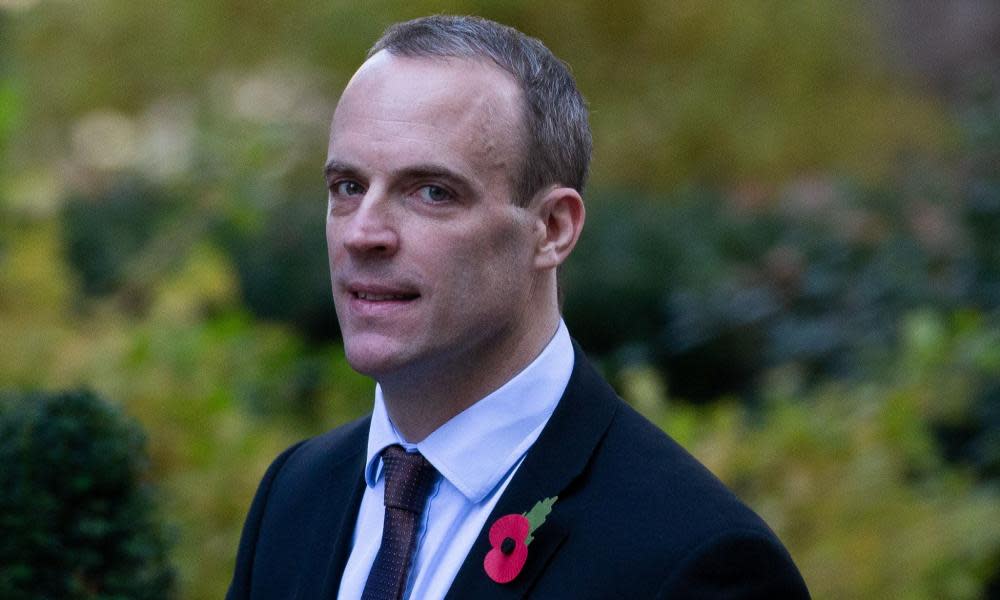Dominic Raab: karate blackbelt who may have dealt knockout blow

When David Davis quit as Brexit secretary in July over Theresa May’s Chequers proposals, Dominic Raab seemed the ideal instant replacement – an experienced junior minister who, crucially, was viewed by Conservative Brexiters as very much one of them.
The former corporate lawyer had long been a proponent for exiting the EU and his presence helming the negotiations in Brussels was seen as a reassurance to anxious Tory MPs – which in turn makes his sudden loss all the more damaging for the PM.
The MP for Esher and Walton since 2010, Raab was reportedly viewed in Brussels as someone with an energetic approach – a contrast to Davis’s relaxed, almost laissez-faire approach to the talks.
He was also diligent in trying to keep Tory leavers onside, staying loyal to May, until he concluded that he “cannot in good conscience” back a plan which, he said, threatened the union and tied the UK too closely to EU rules.
Raab, 44, is the son of a Czech-born Jewish refugee who came to the UK to escape the Nazis. He studied law at Oxford University and took a master’s degree at Cambridge, before joining the law firm Linklaters.
He later worked as one of the principal Palestinian negotiators of the Oslo peace accords before joining the Foreign Office, where he covered a range of briefs including the European Union and bringing war criminals to trial in The Hague.
He then switched to politics, working initially as an aide to Davis, whom he would later replace, before doing the same for a Tory MP on the opposite side of the Brexit spectrum, the former attorney general Dominic Grieve.
Fiercely ambitious when he entered parliament, Raab had to wait five years to become a junior minister, spending three years at the justice ministry before becoming housing minister, the role from which May plucked him into the cabinet.
Before becoming a minister, Raab had regularly challenged May, the then home secretary, over civil liberties and espousing some of his more libertarian views on regulation.
In a pamphlet for the Centre for Policy Studies in 2011, he suggested abolishing the working time directive and ensuring workers employed by small businesses did not benefit from flexible working rights or pension auto-enrolment.
He was also caught up in a sexism row after he suggested feminists were “obnoxious bigots” and men were getting such a “raw deal” that it was time they “started burning their briefs”. His assertion drew a stinging rebuke from May, who suggested it was “not the way forward”.
Some had suggested the disagreement was the reason why Raab took longer to reach the cabinet than some – including himself – thought should be the case.
Raab, a black belt in karate, encountered some embarrassment in April when his then diary secretary complained to an undercover reporter from the Daily Mirror that he was difficult to work with and had “tunnel vision”.
She said: “I’m not his biggest fan. You have to be very straight with him. He finds it difficult dealing with women. He’s very dismissive.” She also revealed that Raab had the same sandwich from Pret a Manger every day, which he has denied.

 Yahoo News
Yahoo News 
